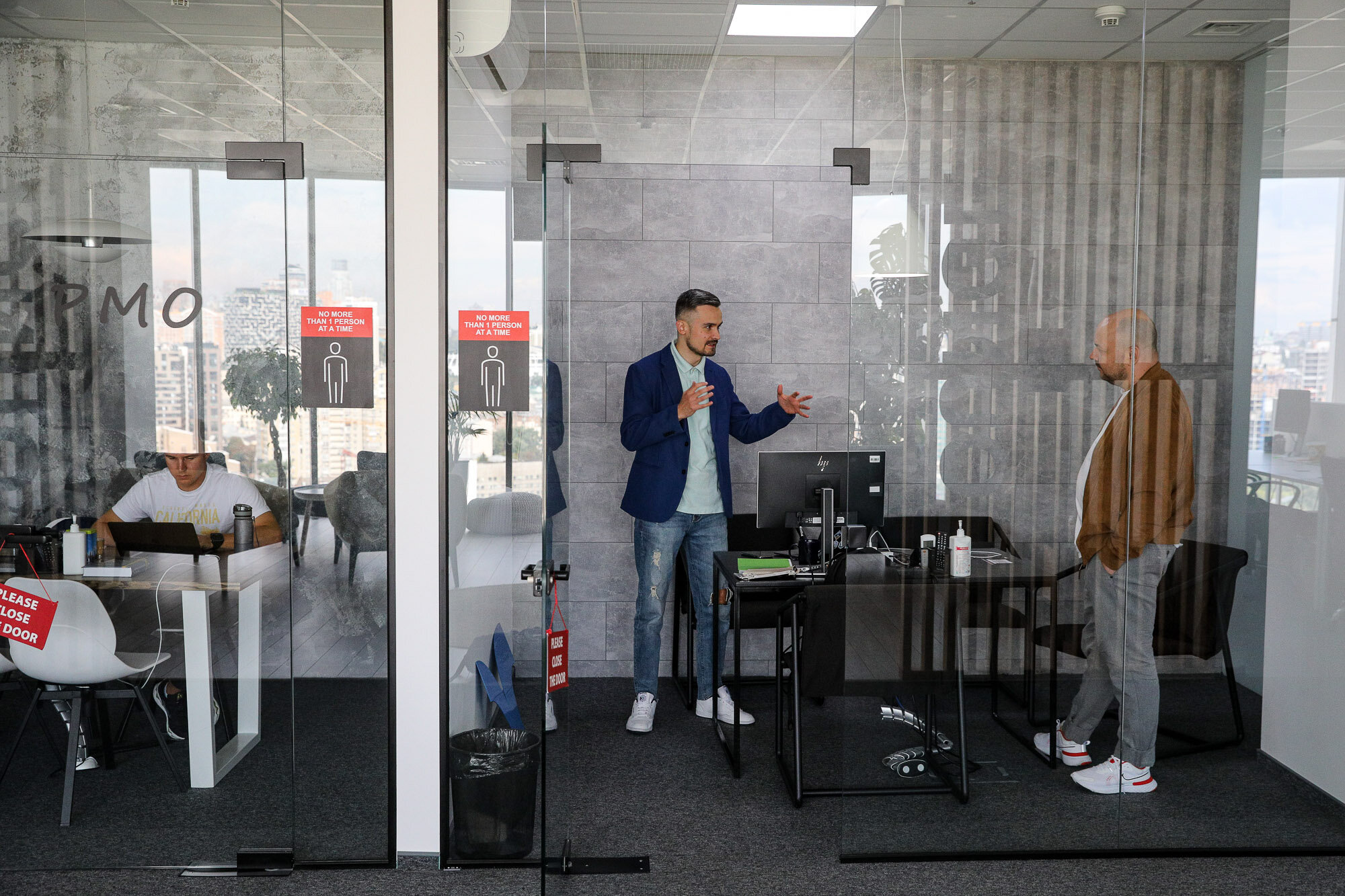Ciklum is everywhere in Ukraine’s information technology (IT) sector.
The firm’s portfolio is a who’s who of big names. Tourism company TUI, financial service Payoneer, Mercedes Pay, trading platform eToro, and Germany’s biggest retailer Metro are only a few of the company’s most prominent clients so far.
As a software development and outsourcing company, Ciklum works on creating custom-fit digital solutions in areas like electronic commerce, cybersecurity, automation and data analysis.
Sitting in an office with a bird’s-eye view of Kyiv, Ciklum CEO Kulraj Smagh believes that the country’s secret is simple: Ukraine has a “phenomenal talent pool.”
“I think that the Ukrainian talent base is just among the best, if not the best in the world,” said Smagh in his interview with Kyiv Post.
Talent pool
Ciklum’s IT specialists have already developed over 1,200 projects in the company’s nearly two-decade history.
In 2020, Ciklum’s revenue reached $125 million in Ukraine, making it the third most profitable company in the Ukrainian IT market and the fifth largest by number of employees.
When Smagh, 38, became Ciklum’s CEO in January 2020 after working as the head of product and advanced technology at Ernst & Young, he brought in former employees of investment banks and top consulting companies to lead his team.
This helped Ciklum focus on its own development rather than simply executing outsourcing contracts.
The company employs over 3,500 specialists and has development centers in 5 countries, including Spain and Poland. It’s headquartered in London.
He often sees how the work of the company’s team in the UK on product strategy mixes with “incredibly strong technical Ukrainian engineering talent” and is seasoned with the mindset of people from Silicon Valley in California, where the company also has clients.
As a result, they all “exceed each other’s potential for what they can do,” he said. “It’s fantastic,” Smagh said.
Kyiv has the largest team that forms the core of the company. It occupies around 18 floors in both towers of Horizon Park business center.
“Ciklum’s heart lives here,” said Smagh, who visits the Kyiv office at least once every three weeks. “It’s where we grew up as a company and organization.”
As the global demand for techies exponentially grows worldwide, the Ukrainian market is hungry for new faces, and Ciklum is no exception.
“The world is really discovering the secret of the level of talent we have here (in Ukraine),” Smagh said.

Ciklum IT specialists work in Kyiv’s office on Sept.1, 2021. (Kostyantyn Chernichkin)
IT investment
The firm’s new philosophy focused on self-growth didn’t affect its investment strategy. The company continues to buy smaller but promising IT companies.
On Sept.1, Ciklum announced that it had bought 100% shares of CN Group, a Czech-based software development firm, from Genesis Capital.
The sale brought Ciklum over 60 clients, including U.S. multinational Procter & Gamble, Austria’s largest construction company Strabag, or Sweden-based TF Bank, as well as CN Group’s 360 engineers, located in Czech Republic, Romania, and Slovakia.
Experts believe that the deal will help Ciklum strengthen its strategic positions in the markets of Eastern and Central Europe, as well as Austria, Germany and Switzerland.
Although the company did not disclose the value of the deal, analyst Tomas Pfeiler estimated the purchase’s price around $90 million, Forbes reported.
‘Standing on shoulders of giants’
Currently, Ciklum’s main shareholder is Recognize Partners, a technology growth equity firm based in the U.S.
Its co-founders, Francisco D’Souza (former CEO of IT services giant Cognizant Technology Solutions ) and Charles Philips are helping Smagh to turn Ciklum “into one of the biggest success stories in IT,” Smagh said.
“Francisco took Cognizant from zero to a 42 billion market cap during his time, ” Smagh said.
Easier networking and finding proper contacts on a global scale come as a bonus. “They are helping us on all fronts,” said Smagh.
Smagh feels that Ciklum now is “standing on the shoulders of giants.” It will help to overcome all possible competitors the company has.
“We can see further, we can go further,” he said.
